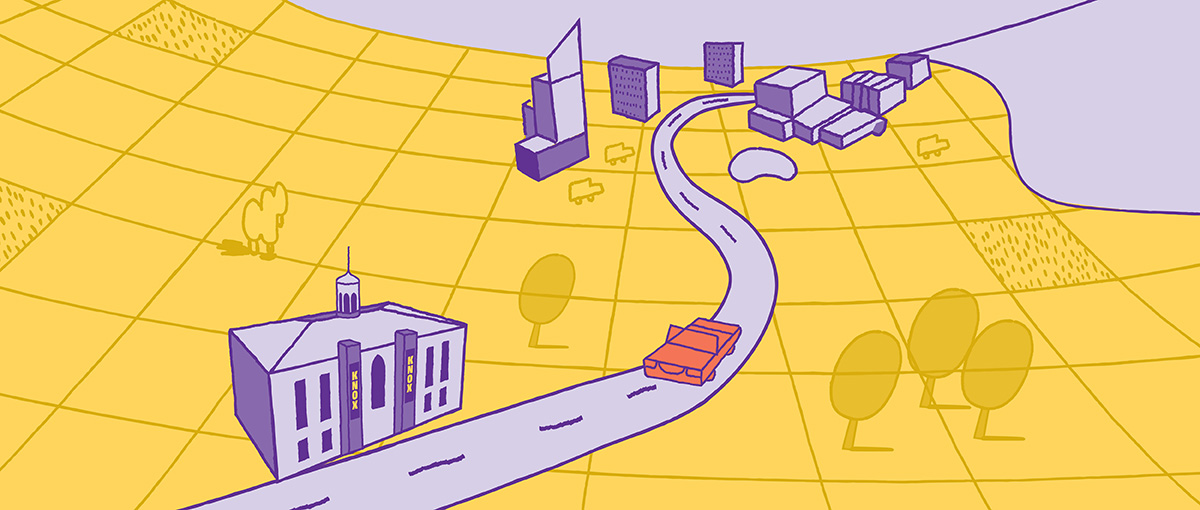

Sam Lorenz
Coal City, Illinois
Data science major, computer science and physics double minor
Sam is a senior who has conducted several research projects based on her interest in statistical modeling.
Why did you choose data science as your major?
I originally came to Knox because I was planning on studying to become an astrophysicist. Spring term 2020, when COVID happened, I was taking Stat 200 with Ole Forsberg, associate professor of mathematics and chair of statistics. I found that I really liked statistics and I preferred the statistical parts of physics rather than the labs and the mathematical computation, so I started studying data science. I got really into statistical modeling and the computer science credits came along with that. Then I just had to finish physics because I still love it, but I love statistics more.
Can you talk a little bit about the research you’ve done, why you’re interested in that research, and how you started?
I decided to start doing research because I really enjoy statistical modeling and a lot of that is research purchasing. I’ve done a lot of research at Knox. The first project I did was “A Study into Generalizability Theory” with Forsberg and Benjamin Solomon, associate professor in educational and counseling psychology at the University at Albany. For this project, I wrote part of a package in R, a programming language for statistical computing and graphics. Then I did two different projects about differential validation, “Studying Differential Invalidation in Egypt's 2018 Presidential Election” with Forsberg, and “Searching for Differential Invalidation in Hungary's 2018 Parliamentary Election” with Katie Stewart, assistant professor of political science. These research projects gave me perspectives from both statistics and political science.
I wrote a solution manual, which provides answers to the questions in a textbook Forsberg authored, Understanding Elections through Statistics: Polling, Prediction, and Testing. Then I did another project over the summer, “A Study into Classification Models in R and Python” with Forsberg, comparing classification models and types of programming. Right now I'm doing an honors project on vector-generalized linear models with Mary Armon, associate professor of mathematics; John Haslem, lecturer in English and director of the Center for Teaching and Learning; Solomon; and Forsberg. That's going well so far.
What brought you to Knox?
What I really liked about Knox was the location because I come from a smaller town with a small high school. I liked that the class sizes were still small, plus the location is really nice. Galesburg isn’t a big city, so I don't have to worry about traffic or have any anxieties about that. Knox gave me pretty good financial aid as well.
What are your plans after Knox?
I think I'm going to get a job right away, probably something with analytics or time forecasting analytics, which is a different part of statistics.
Is there any experience or person at Knox that stands out as particularly influential for you?
In general, all the research opportunities that are offered. There's something for people who like political science and people who like statistics. There are opportunities for people who like biology or for people who like chemistry. All the professors are really open, so if you go to them with an idea, they're usually willing to support it. The person that stands out to me the most off the top of my head has to be Professor Forsberg, because he's helped me with a lot of research projects.

